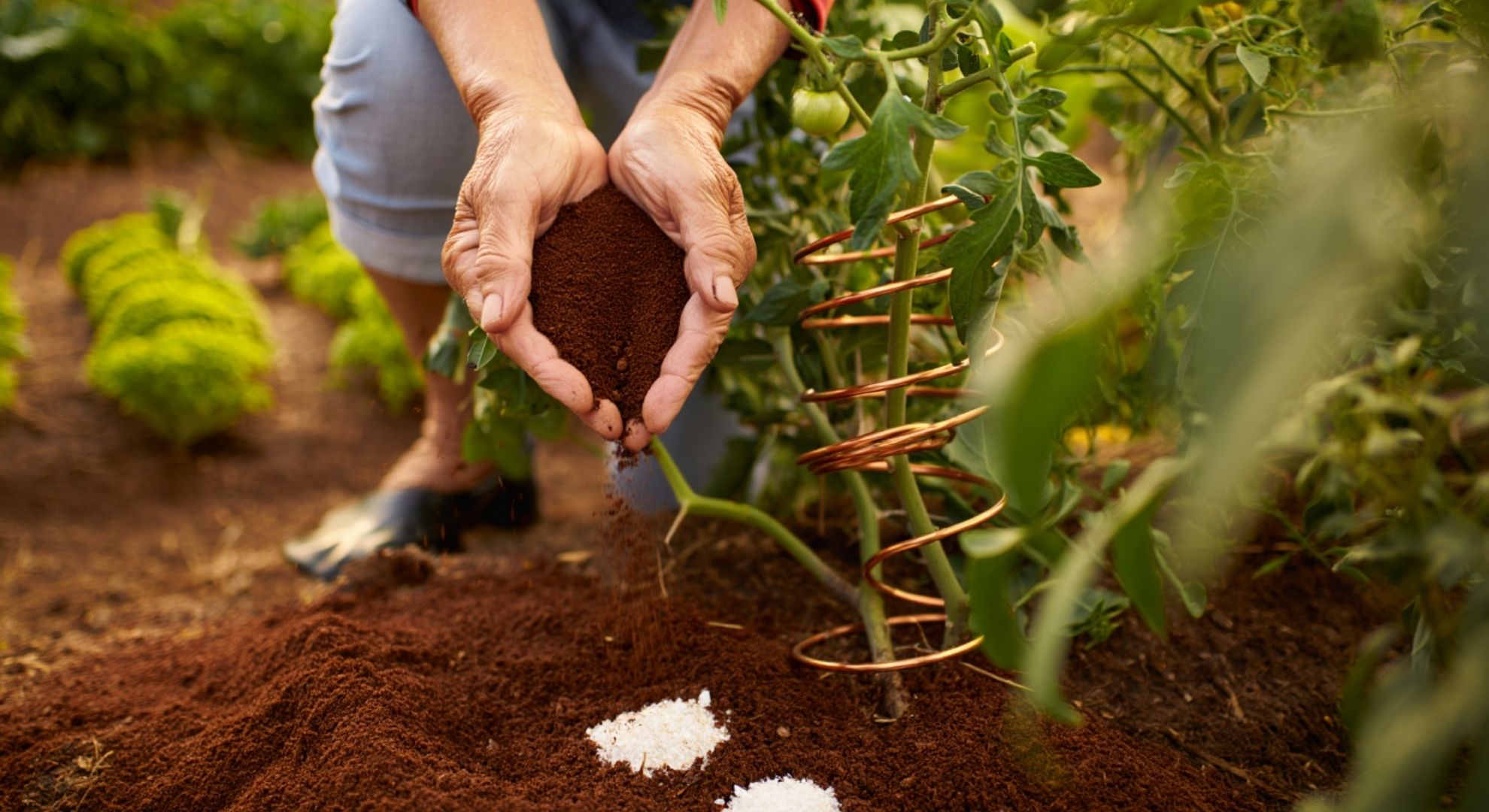A timeless problem for gardeners
Every gardener knows the frustration of waking up to find tender leaves and young shoots devoured by slugs. These slimy intruders thrive in damp soil and can destroy an entire vegetable patch overnight. Chemical repellents exist, but many prefer natural, traditional remedies—some of which have been passed down for generations.
Surprisingly, old-fashioned wisdom often proves just as effective as modern solutions. Here are five of the most reliable grandmother’s tricks for keeping slugs away from your garden.
1. Coffee grounds as a natural barrier
One of the simplest and most accessible tricks is to use coffee grounds. Sprinkled around plants, they create a texture that slugs dislike while also enriching the soil with nutrients.
The mild caffeine can even act as a repellent, discouraging slugs from crossing the barrier. Many gardeners swear by this method, especially for protecting young seedlings.
2. Crushed eggshells for sharp protection
Another household item turned garden ally: eggshells. Crushed into small pieces, they form a sharp, uncomfortable surface that slugs avoid crawling over.
Placed in a ring around vulnerable plants, eggshells create a natural “fence.” Not only does this help deter pests, but it also adds calcium to the soil—benefiting plants like tomatoes and peppers.
3. Beer traps to lure and capture
An age-old classic, the beer trap remains one of the most effective tricks. By burying a small container filled with beer at ground level, gardeners can attract slugs with the smell of fermentation.
Once inside, the slugs drown, significantly reducing their population.
“It may sound strange, but slugs can’t resist the scent of beer. It’s one of the oldest and most reliable tricks we still use today,” explains an organic gardening enthusiast.
4. Copper tape as a modern twist on tradition
Although not new, copper has long been known as a slug deterrent. When slugs touch copper, they experience a mild reaction that discourages them from crossing it.
Today, copper tape or strips can be placed around plant pots, raised beds, or greenhouse entrances to create an invisible electric fence for slugs.
5. Evening watering to reduce slug activity
One of the simplest yet most overlooked tricks is timing your watering. Slugs love moisture, and watering the garden late in the evening provides the perfect environment for them to feast at night.
By switching to morning watering, you can keep the soil drier in the evening, making your garden less inviting to these pests.
Comparing natural vs chemical solutions
| Method | Effectiveness | Environmental impact | Cost | Effort required |
|---|---|---|---|---|
| Coffee grounds | Moderate | Eco-friendly | Free/low cost | Low |
| Eggshells | Moderate | Eco-friendly | Free | Low |
| Beer traps | High (local) | Eco-friendly | Low | Medium (reset often) |
| Copper tape | High | Eco-friendly | Moderate | Low |
| Chemical pellets | Very high | Harmful to wildlife | Moderate/high | Low |
This comparison highlights why many gardeners prefer traditional remedies: they may require a little more effort, but they are safer for the environment and equally effective when used consistently.
Why these methods endure
Grandmother’s tricks are still used today because they combine simplicity, affordability, and sustainability. Unlike chemical pellets, which can harm birds, pets, and beneficial insects, these methods allow gardeners to protect their plants without disturbing the ecosystem.
The real secret is consistency: applying coffee grounds regularly, refreshing beer traps, and adjusting watering habits make these strategies effective over time.
The bottom line
Slugs may be persistent, but so is traditional gardening wisdom. With coffee, eggshells, beer, copper, and a little attention to watering, you can keep your garden thriving—without resorting to harmful chemicals.
As countless gardeners have discovered, sometimes the best solutions are the simplest ones passed down through generations.
